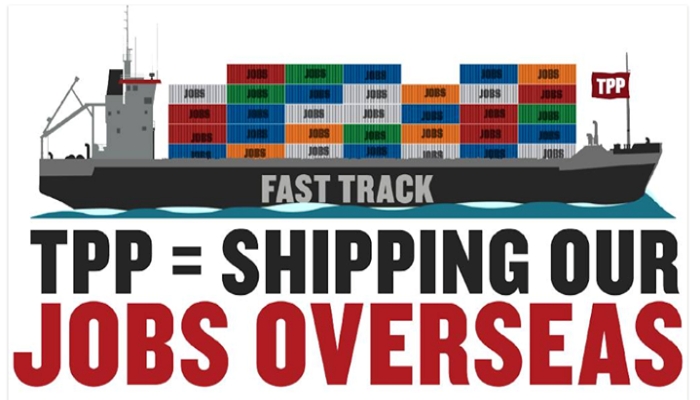
New trade agreement threatens jobs say unions
Australia has negotiated the worst deal on safeguards for local jobs out of any of the signatories to a major trade agreement, according to Australian unions.
The 12 nation agreement Transpacific Partnership Agreement (TPP), which has been negotiated behind closed doors over several years, will weaken the ability of national governments to determine policy in a range of areas from intellectual property protections and health policy through to labour market regulation.
The full text of the agreement was only made public in November this year.
While the agreement has drawn criticism from sources as diverse as the Australian Competition and Consumer Commission (ACCC) and the Australian Medical Association (AMA), union concerns are currently focused on the commitments that Australia has made in relation to labour mobility.
The ACTU says that while Australia has agreed to temporary entry for all workers under its 457 visa program, covering 651 occupations, most other countries make much narrower commitments or no commitments at all.
For example, Japan limits entry to someone employed by an overseas company or in an advanced research position, Chile limits its commitments to a business person engaged in a specialised occupation and the US, where the TPP is deeply unpopular on both sides of the Presidential election campaign, makes no commitments on labour mobility whatsoever.
The Government may also have signed away its right to require labour market testing of employers seeking to take on temporary overseas workers.
While other TPP countries, such as New Zealand and Brunei have explicitly kept such safeguards in place, Australia has reserved no such right, raising serious concerns that it may be prohibited.
ACTU President Ged Kearney has written to Trade Minister Andrew Robb, seeking clarification over the possibility that the agreement may prohibit labour market testing.
The recent China Australia Free Trade Agreement (ChAFTA) also generated widespread community concern over similar threats to local jobs. The ACTU says that with the Government’s sights now set on the 23-country Trade in Services Agreement (TiSA) and a free trade agreement with India, it’s starting to look like there is a pattern of apathy when it comes to protecting Australian jobs.










